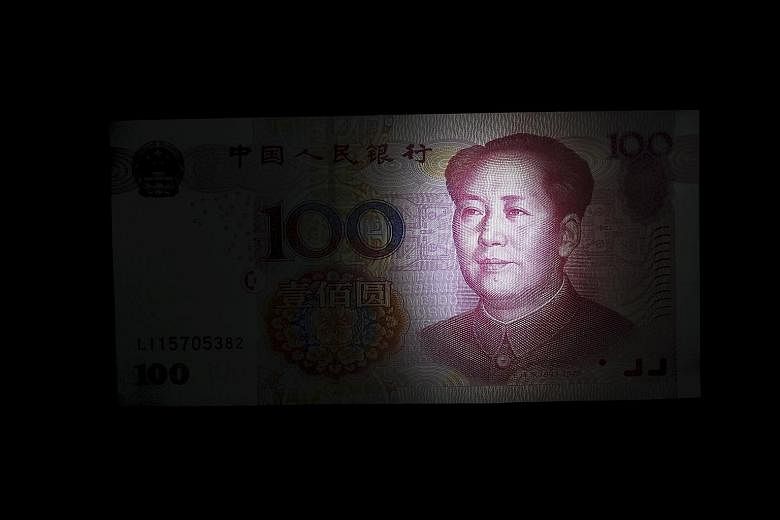The first two weeks of the year have not been kind to investors.
Stock markets around the world have shed about US$3 trillion ($4.3 trillion), led by China stocks which have fallen by around 19 per cent since the start of the year.
But beyond the financial markets, there are growing concerns that the turmoil is pointing to rising risks in the "real" economy - a country's lifeblood involving the production of goods and services, as opposed to the buying and selling on the financial markets.
For one thing, the falling value of the Chinese yuan, which was the trigger for the market declines, is reflecting weak Chinese growth.
If growth in China continues to slow, there are knock-on effects for the region, including Singapore.
Already hospitality firms here are worried about falling numbers of Chinese tourists in the aftermath of the stock market swings.
Oil and other commodities have also slumped in response to reduced demand from China, affecting commodity exporters such as Indonesia, Malaysia and Australia.
Singapore exports have also taken a hit and analysts are warning that the drop could translate into a long-term decline.
The risk of China's growth slowing further is a small but real one, says HSBC economist Frederic Neumann. "The wobbly global backdrop, for one, renders the world much more vulnerable to a growth shock today. So, a hard landing in China would spread pain everywhere," he says.
Then there is the spectre of another financial crisis, with mounting levels of debt in emerging markets.
A drop in the yuan, say economists, could spark a currency war where emerging market currencies also start to fall. This could lead to emerging market companies, which have borrowed more than US$3 trillion over the past five years, finding it difficult to repay or refinance their debt.
How serious is the China shock?
Insight examines the issue.
Risks from the rout: Is it Code Red?
In the past two weeks, global stock markets have crashed amid panic selling. Led by Chinese shares, which have shed around 19 per cent, global stock markets have lost more than US$3 trillion (S$4.3 trillion) in value, nearly equivalent to the size of the German economy, the fourth largest in the world.
Economists do not pay too much attention to stock market gyrations, as they have little to no impact on the real economy.
But this time could be different, say Rabobank analysts. "One of the lessons learnt from past crises is that one ought to take the market seriously. Very seriously. From that viewpoint, the start to the year is a screaming warning sign," says the Dutch bank in a client note.
China's economic policy: So just who is in charge?
A vast array of forces and actors - many of them pulling in opposing directions - are at work in China's increasingly pluralised political economy. The country's policymaking structure is often characterised by contradictions, being both authoritarian, due to the absolute power that the Chinese Communist Party (CCP) wields, and fragmented at the same time, say experts.
But the opaqueness of the system, the intimate ties between the government and the ruling party, and the overlapping functions of many of China's government agencies have made it hard to determine who is actually in charge.
On paper, it is the State Council, China's 35-member Cabinet headed by Premier Li Keqiang, that is at the apex of policymaking.
For Singapore, a new normal
The upshot of China's woes is that Singapore will have to adjust to a structurally slower rate of growth in its largest trading partner, as well as more volatility ahead, analysts say.
China's economic growth for the whole of last year is expected to have cooled to its slowest pace in a quarter of a century - 6.9 per cent, down from 7.3 per cent in 2014.
And many market watchers expect that growth in the world's second largest economy will moderate further as it moves to a new model of growth - driven by domestic demand instead of exports and investment. The weak Chinese currency - down more than 5 per cent against the greenback since August - may also drive the global economy closer to a recession, as China's purchasing power deteriorates every time the currency is devalued.
What it means for the region
The saying goes, that the world catches a cold when China sneezes. If that is true, what will happen if China catches a fever?
Already in the throes of an economic slowdown, the world's second-largest economy has started the new year with a major hammering to its stock and currency markets.
And an inability of the authorities to put out the fires has raised concerns that Beijing is losing its grip on economic policy, as analysts fear the impact may spread across economies from East Asia to Down Under.


